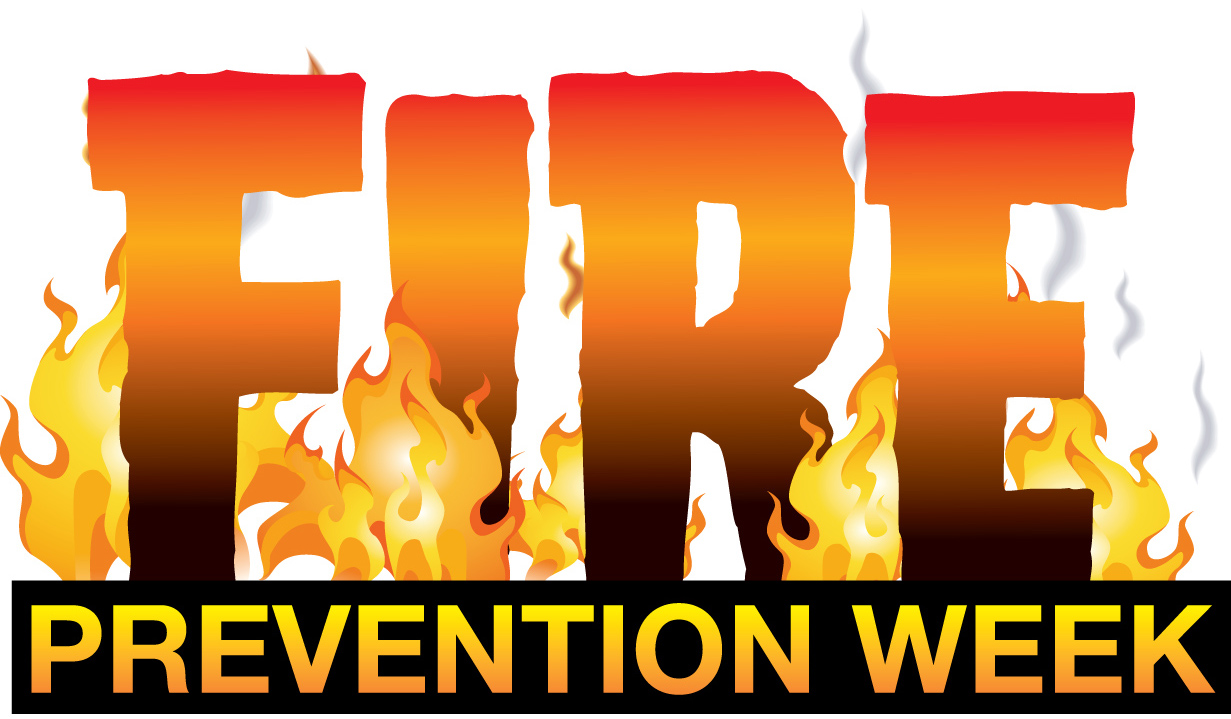Fire Prevention Week is observed each year during the week of October 9th.
Source: Fire-Prevention-Week/About
Today’s homes burn faster than ever. You may have as little as two minutes (or even less time) to safely escape a home fire from the time the smoke alarm sounds. Your ability to get out of a home during a fire depends on early warning from smoke alarms and advance planning.
Here’s more fire safety information you can use:
Home Escape Plan Grid (Printable)
Family Action Plan Checklist (Printable)
Home fire escape planning and practicing
It is important for everyone to plan and practice a home fire escape. Everyone needs to be prepared in advance, so that they know what to do when the smoke alarm sounds. Given that every home is different, every home fire escape plan will also be different.
Have a plan for everyone in the home. Children, older adults, and people with disabilities may need assistance to wake up and get out. Make sure that someone will help them!
Smoke alarms
Smoke alarms sense smoke well before you can, alerting you to danger. Smoke alarms need to be in every bedroom, outside of the sleeping areas (like a hallway), and on each level (including the basement) of your home. Do not put smoke alarms in your kitchen or bathrooms.
Choose an alarm that is listed with a testing laboratory, meaning it has met certain standards for protection.
For the best protection, use combination smoke and carbon monoxide alarms that are interconnected throughout the home. These can be installed by a qualified electrician, so that when one sounds, they all sound. This ensures you can hear the alarm no matter where in your home the alarm originates.
Importance of fire prevention
In a fire, mere seconds can mean the difference between a safe escape and a tragedy. Fire safety education isn’t just for school children. Teenagers, adults, and the elderly are also at risk in fires, making it important for every member of the community to take some time every October during Fire Prevention Week to make sure they understand how to stay safe in case of a fire.
On this site, you’ll find loads of educational resources to make sure that every person knows what to do in case of a fire. We have everything from apps to videos to printables and much more, to make sure you have the resources you need to keep your family, your community, and your city safe.
About Fire Prevention Week
Since 1922, the NFPA has sponsored the public observance of Fire Prevention Week. In 1925, President Calvin Coolidge proclaimed Fire Prevention Week a national observance, making it the longest-running public health observance in our country. During Fire Prevention Week, children, adults, and teachers learn how to stay safe in case of a fire. Firefighters provide lifesaving public education in an effort to drastically decrease casualties caused by fires.
Fire Prevention Week is observed each year during the week of October 9th in commemoration of the Great Chicago Fire, which began on October 8, 1871, and caused devastating damage. This horrific conflagration killed more than 250 people, left 100,000 homeless, destroyed more than 17,400 structures, and burned more than 2,000 acres of land.


 Facebook
Facebook
 X
X
 Pinterest
Pinterest
 Copy Link
Copy Link
